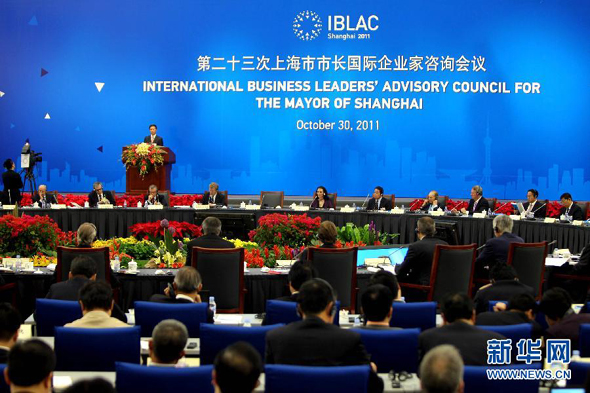Shanghai aims to be leader in food safety
 0 Comment(s)
0 Comment(s) Print
Print E-mail
China.org.cn, October 31, 2011
E-mail
China.org.cn, October 31, 2011
The mayor of Shanghai, Han Zheng, said on Sunday that the city aims to become a leader in China's food safety.
Han's comment, made during the International Business Leaders' Advisory Council for the Mayor of Shanghai, comes amid growing public pressure to regulate the much-criticized food industry, which has seen a spate of scandals in recent years.
|
Don't miss: |
"Market order will be regulated to strictly prevent activities that harm consumers' interests", Han said in a speech.
The Chinese government made food safety a national priority after a 2008 scandal involving melamine-tainted baby milk, which sickened about 300,000 infants and killed at least six and sparked nationwide outrage.
Since then, the country has pursued a strict crackdown on food safety issues, raiding and arresting numerous food processors, to restore public confidence.
For Shanghai, the stakes are high, as fears of tainted food might scare away the high-end professionals that the city needs to achieve its goal of becoming an international trade and financial center by 2020.
In September, three factory managers were jailed in Shanghai, with terms of up to nine years, for selling substandard steamed buns, a common food for China's breakfast tables. A month later, Shanghai police shut down 25 illegal workshops engaged in making cooking oil out of swill oil dredged from gutters, in a citywide food safety campaign.
So far this year, 105 people involved in 50 cases have been detained for making or distributing recycled swill oil and other actions such as selling fake food and health care products, according to Xinhua News Agency, citing the new Shanghai Food Safety Commission.
The city has also increased the rewards paid to people who report breaches in food safety rules. The minimum reward is now 500 yuan (US$78), with no maximum.
"It (food safety) is an issue and the mayor is right to raise it," said David Reid, chairman of Tesco PLC, the world's third-largest retailer by revenue.
But Reid added that the world was not in a "panic" about China's food safety and will invest and do business in China as usual. To solve the issue, he said, the city should target the whole supply chain, not just the retail segment.
"Food safety is a challenge for the whole supply chain. The recent example happens to be at the retail level, but equally, there are many issues at other areas (such as) the growers, the manufacturers."







Go to Forum >>0 Comment(s)